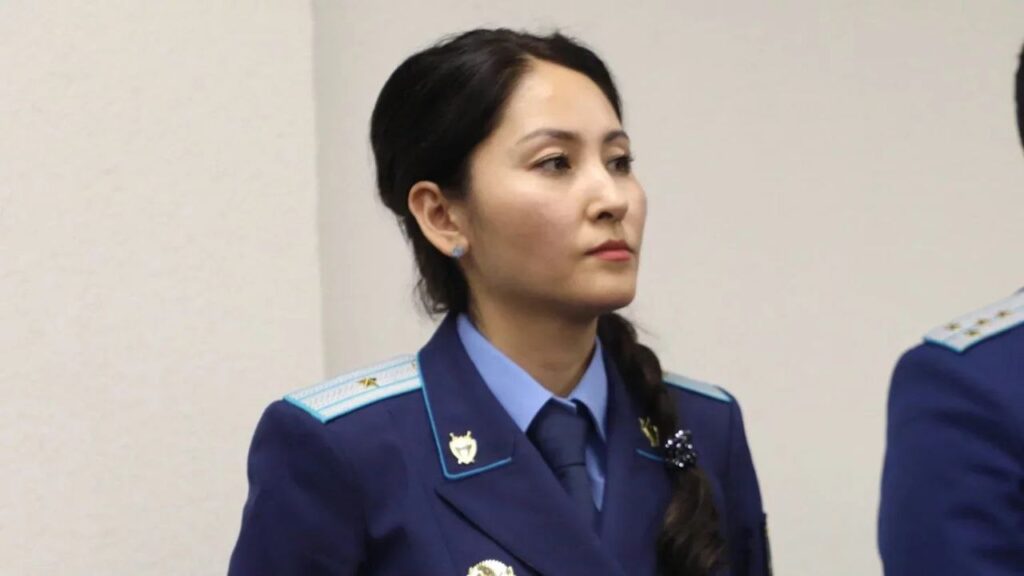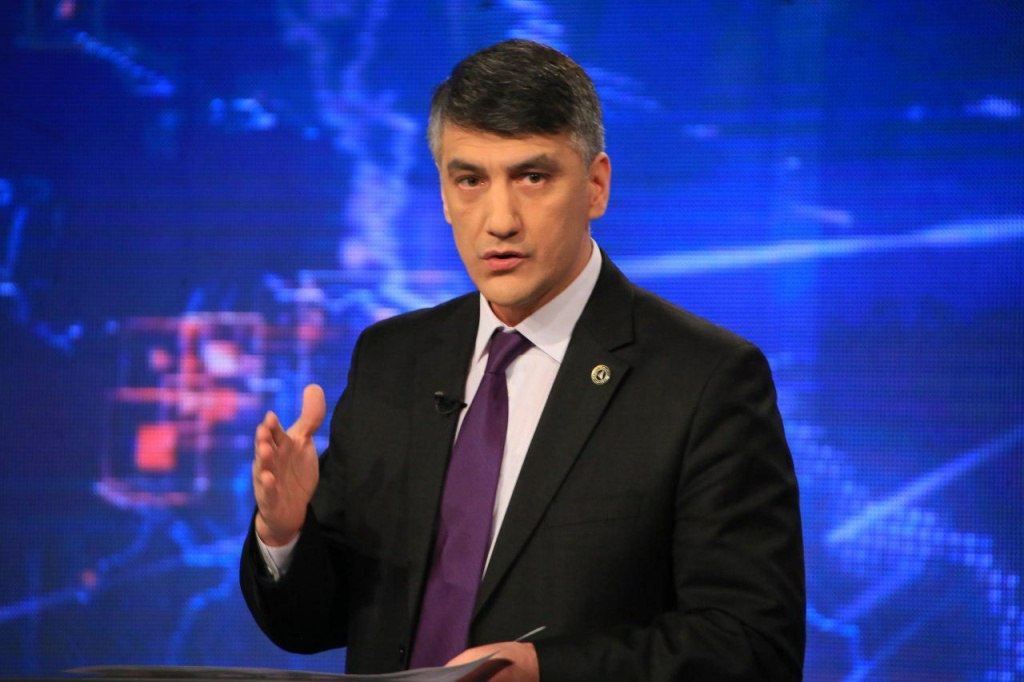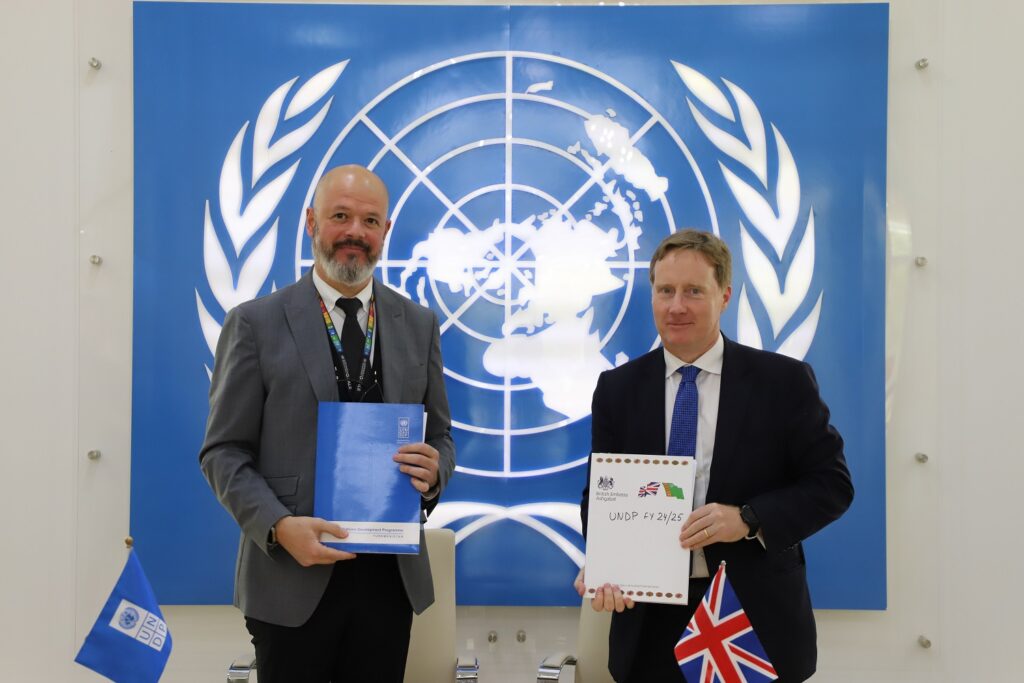“I Hope Saltanat’s Family Can Find Peace” – Women of Kazakhstan Speak Out on Bishimbayev’s Sentence
On November 9, 2023, former Kazakh Minister of the National Economy, Kuandyk Bishimbayev was caught on surveillance cameras arguing with and then brutally beating his common-law wife, 31-year-old Saltanat Nukenova, for around eight hours outside a restaurant he owned in Astana. A forensic examination showed that she had been strangled, but the cause of death was recorded as traumatic injury to the brain. The high-profile case which was live-streamed garnered international attention. Despite pleading not guilty to premeditated murder, Bishimbayev was sentenced to 24 years’ imprisonment for torturing and murdering Nukenova, and his cousin Bakytzhan Baizhanov to four years for his part in covering up the crime.
Prosecutor Aizhan Aimaganova, who became widely-known during the trial, said in an interview with Tengrinews.kz that she believes the verdict will change the country forever. “Family and domestic violence is a pressing problem… I hope that after this trial, women will realize that going to law enforcement is not useless. It is necessary to talk about problems. I think now any domestic tyrant will think twice before raising his hand,” she said.

Prosecutor Aizhan Aimaganova; image: Press service of the Astana Court
While the length of the sentence is a victory for advocates against gender-based violence, both within Kazakhstan and in the many parts of Europe where the trial was also followed closely, many Kazakhs feel it is still too early to say that justice has been done. In an open discussion that is rare in Central Asia, many citizens are posting their concerns on social media that the Nazarbayev-era official will find a way to get out of prison early: there is already speculation that Bishimbayev, a former member of the country’s elite, will leverage his political connections to secure an early release – or be recognized as terminally ill.
Following the verdict, TCA took to the streets of Kazakhstan to ask women their opinion.
“I finally feel relieved,” Sara, an SMM manager from Astana told TCA. “Twenty-four years is a justified sentence in my opinion. Although tragic, this case drew public attention to a great many issues, such as the need for both a new law against domestic abuse and charities to support victims of domestic violence, which is very prominent in Kazakhstan. The whole country watched the case unfold, and that attention was put to good use since many other domestic violence cases got the attention they deserved. I hope that our justice system will make sure that Bishimbayev doesn’t get a chance to get out early and serve his full sentence. The same applies to Baizhanov.”
“Considering various aspects, including the status of his family and the presence of his children, this sentence is probably objective, especially given the jury’s involvement,” 21-year-old journalist, Kamila told TCA. “The main issue now is to prevent his release on parole once the unrest subsides, though I know this is only possible if the victim’s family give their consent.”
“From an objective point of view, 24-years for a brutal murder with aggravating circumstances is quite short, but taking into account all the nuances such as the status of his family and his former position as a minister, this is the best we can get in our country,” Alua, a teacher from Taraz commented. “The only thing I fear at the moment is that he may be released on parole as soon as the fuss dies down.”
“Based on his age, this sentence looks like a life sentence,” Raushan, a 43-year-old Art Historian from Almaty told TCA. “When he gets out, he’ll be about 70-years-old, and at that age, he won’t be able to hurt anyone anymore. The main consequence of this case is the adopting of a new law protecting us women.”
“This was a case observed by all,” said 23-year-old student, Jasmine. “It seems to me that the verdict was given fairly, without any bribery of the jury or corruption. I’m not sure if 24 years is enough for all the horrors he committed, but I hope Saltanat’s family can find peace.”
According to official statistics, around 400 women are killed in incidents of domestic violence each year. In a call for Kazakhstan to toughen penalties for domestic violence against women and children, a petition was signed by some 150,000 citizens, and in April this year, President Tokayev signed onto the statute book a law in line with OECD standards which tightens the penalties for domestic violence and provides more help for survivors. The legislation, which has become widely-known as “Saltanat’s Law,” will come into force on 15 June.








